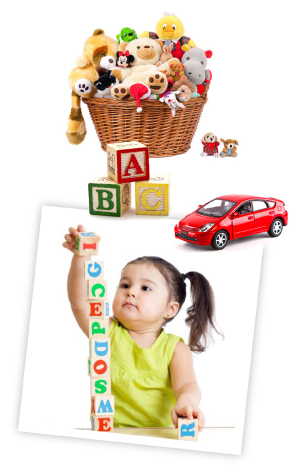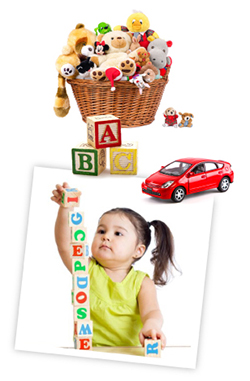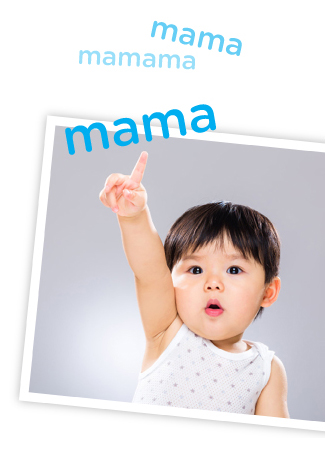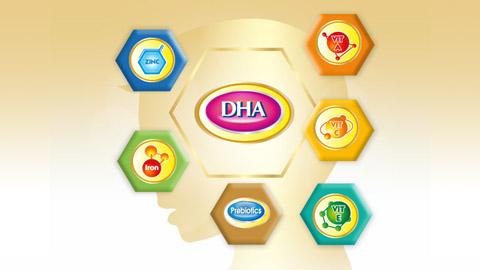By now, your little toddler has become something of a Little Indiana Jones or Alice in Wonderland, exploring, grabbing, climbing, and sometimes tasting everything he or she can get their hands on. These are natural tendencies for the growing child. As a parent you can help advance this development in four major areas: cognitive, motor, communication and social.
Toddler at 18 - 24 months: Cognitive
Roll a ball back and forth. This helps improve depth perception, visual tracking ability, and hand-eye coordination—and it teaches her about turn-taking.
Encourage jumbling up and sorting. Provide several baskets, boxes, or buckets full of similar objects—for example, choose 3 similar categories, one with blocks, one with stuffed animals, and a third with toy cars. Your toddler will enjoy emptying the items, sorting them, and returning them to their original containers.
Using toy versions of real-life objects, talk to one another on play telephones, cook in a toy kitchen and build a house by stacking blocks.
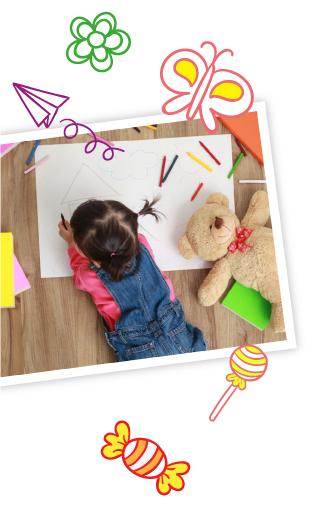
Toddler at 18 - 24 months: Motor
Have a race. Once your toddler is fairly steady on her feet, she’ll have fun competing with you—and stepping up her speed will help improve her coordination.
Practice fine motor skills. Show your toddler how to fold paper, stack blocks, and make shapes like balls or noodles out of clay. And when you read books together, have her turn the pages.
Encourage creativity. Have fat crayons and thick paper on hand for your toddler to scribble with. (You might notice she has a preference for one hand or the other; right- and left-handedness usually become apparent around age 2.) Clay and finger paints (with supervision) are also big hits at this age.
Sing songs that involve hand and body motions. There are plenty of classics to choose from: “The Itsy Bitsy Spider,” “I’m a Little Teapot,” “Where Is Thumbkin,” “This Little Piggy,” and “Hokey Pokey”.
Toddler at 18 - 24 months: Communication
The medium of sound carries your voice to your baby. Talk, talk, talk! It’s one of the best things you can do to boost your child’s communication skills and intelligence. Researchers have consistently found a strong correlation between the sheer number of words a child hears from parents and other caregivers by age 3 and both IQ, and performance in school.
Repeat and expand. When your toddler uses a new word or says a short sentence, repeat it and expand on it: “Yes, look at the big dog. He is wearing a blue sweater.”
Lead a sound tour. Choose a room in your house and explore its objects with your toddler, focusing on their sounds. Listen to a ticking clock, for example, the hum of the refrigerator, or the sweeping of a broom. Narrate what you hear: “The clock says t-t-t,” “The refrigerator goes hmm,” “The broom says swish, swish, swish.” This close attention helps your child become attuned to a full range of letter sounds.
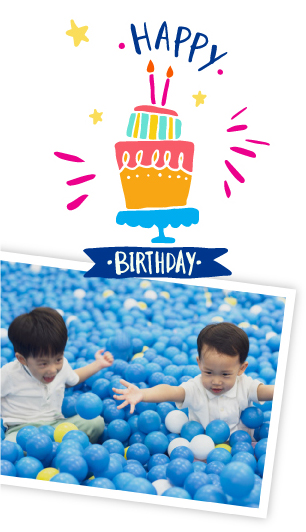
Toddler at 18 - 24 months: Social
It’s too early to share. Don’t force sharing. Your toddler can’t yet grasp the concept of sharing, so if she gets into a conflict with a playmate over a toy, it’s better to draw her attention to another toy or activity rather than insist that she share.
React neutrally to tantrums. Your child will slowly but eventually learn to use words and self-control to express her emotions. But right now, she may use tantrums. Don’t play up with the tantrums. The less you respond to these outbursts, the more quickly they’ll pass.
Turn off your gadgets. Leave your smartphone or tablet in another room or better, turn it off when you’re playing with your child. While most calls or messages can wait, these are moments with your child you won’t get back. Give your undivided attention. They’re key to your bonding and her development. She needs to see your face and your emotions as you talk to her.
Sing a silly song. When you’re cleaning or picking up toys, make it a game by singing about it, and as a way to encourage your toddler to help you.
Plan a birthday party. Your toddler is beginning to make special friends. A short party of about an hour is enough, since 2-year-olds don’t yet interact a lot during play. They will enjoy simple activities, such as sandbox play.

